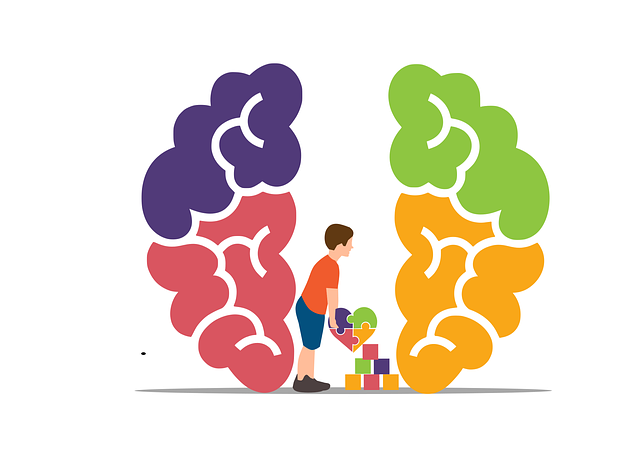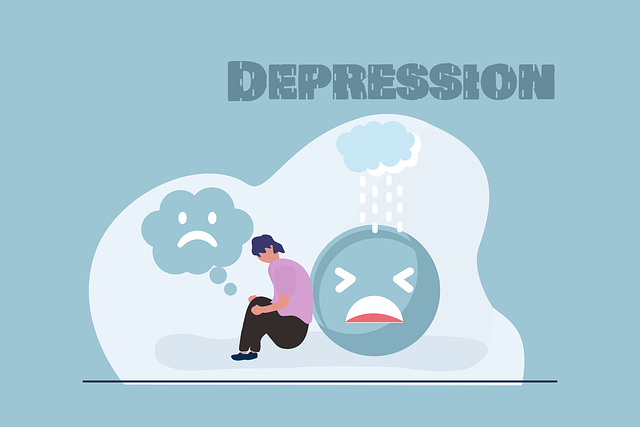In a stressful modern world, Superior Couples Counseling Therapy offers a secure environment where partners learn 'mind over matter' principles for stress management. Through open communication, risk management planning, and coping strategy development, this holistic approach strengthens relationships, improves self-esteem, and builds resilience. Incorporating techniques like mindfulness, relaxation exercises, and CBT, therapy sessions empower clients with tools for depression prevention and mood management, fostering emotional well-being and addressing root causes of stress on an individual and community level.
Stress management is a vital skill, especially in today’s fast-paced world. This comprehensive guide explores effective techniques tailored for couples seeking superior counseling therapy. We delve into the science behind stress and its impact on relationships, emphasizing communication as a powerful tool for mitigation. Discover proven coping strategies designed to enhance connection and resilience. Learn how integrating these techniques into therapy sessions can revolutionize the way couples navigate life’s challenges, fostering healthier, more fulfilling partnerships.
- Understanding Stress and Its Impact on Relationships
- The Role of Communication in Stress Management
- Effective Coping Strategies for Couples
- Integrating Stress Management Techniques into Counseling Therapy
Understanding Stress and Its Impact on Relationships

Stress is a universal experience that can significantly impact our lives and relationships. It’s crucial to understand that chronic stress, left unaddressed, can lead to strained connections and even break down communication barriers within couples. In today’s fast-paced world, where demands on our time and mental energy are ever-increasing, managing stress becomes an essential aspect of maintaining healthy relationships.
Superior Couples Counseling Therapy provides a safe space for individuals to explore the mind over matter principles that can help them navigate life’s challenges. By implementing effective risk management planning for mental health professionals, therapists enable couples to identify triggers, develop coping strategies, and enhance their ability to support each other during stressful times. This holistic approach ensures that relationships remain robust and nurturing, fostering a sense of community outreach program implementation within the therapy process itself.
The Role of Communication in Stress Management

Effective stress management is greatly enhanced by open and honest communication, a key aspect often explored in superior couples counseling therapy. When individuals can express their feelings, fears, and frustrations openly, it paves the way for understanding and support from both partners. This process not only builds stronger relationships but also fosters self-esteem improvement and resilience building. By learning to communicate effectively, couples can navigate stress together, transforming challenges into opportunities for growth.
In today’s fast-paced world, mental health policy analysis and advocacy play a crucial role in promoting healthy communication strategies. Recognizing the impact of stress on individuals and relationships, these policies aim to provide resources and platforms that encourage open dialogue about emotional well-being. Through such initiatives, communities can better understand and address the root causes of stress, leading to more effective prevention and management techniques for everyone, regardless of their background or situation.
Effective Coping Strategies for Couples

Many couples find that incorporating effective coping strategies into their lives can significantly enhance their overall mental wellness. Superior Couples Counseling Therapy often emphasizes the importance of open communication and shared problem-solving skills, which are crucial elements in navigating stress together. By participating in regular sessions with a trained therapist, partners can learn valuable techniques to manage conflicts and strengthen their emotional healing processes.
Through specialized Mental Health Education Programs Design tailored for couples, they gain insights into each other’s perspectives and develop strategies to support one another during stressful times. Additionally, engaging in activities that promote mental wellness, such as co-watching a Mental Wellness Podcast Series Production, can foster deeper connections and create shared moments of relaxation and laughter. These collective efforts contribute to building a robust foundation for emotional resilience within the relationship.
Integrating Stress Management Techniques into Counseling Therapy

Incorporating stress management techniques into counseling therapy is a game-changer for many clients seeking superior couples counseling or individual support. By integrating practices like mindfulness, relaxation exercises, and cognitive behavioral therapy (CBT), therapists can provide powerful tools for depression prevention and mood management. These techniques are particularly beneficial in addressing the impact of trauma, offering effective trauma support services within the therapeutic framework.
The process involves teaching clients to recognize and regulate their stress responses, fostering a sense of control and emotional well-being. For instance, mindfulness practices help individuals stay present and non-judgmental, reducing reactivity to stressful situations. Similarly, CBT equips clients with strategies to challenge negative thought patterns, thereby improving mood management over time. This holistic approach ensures that counseling therapy is not just reactive but proactive in preventing and managing stress-related issues, such as depression and trauma.
Stress management techniques are invaluable tools for enhancing relationships and overall well-being. By understanding the impact of stress and utilizing effective communication strategies, couples can improve their coping abilities. Integrating these techniques into superior couples counseling therapy provides a holistic approach to address relationship challenges and foster healthier dynamics. Through education and practice, individuals equipped with these skills can navigate life’s stressors together, ultimately strengthening their bonds.












